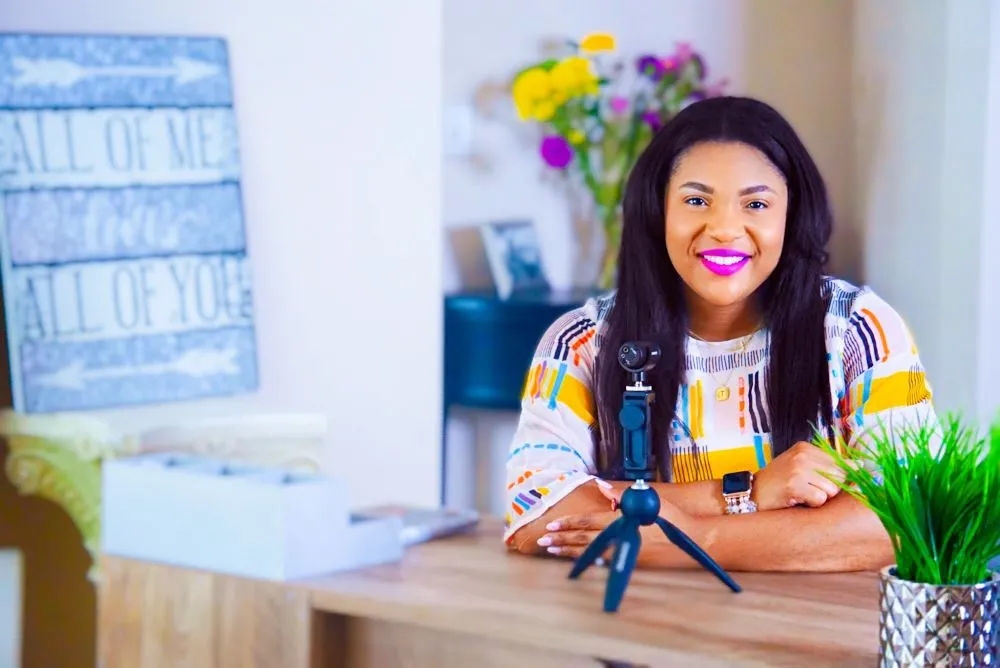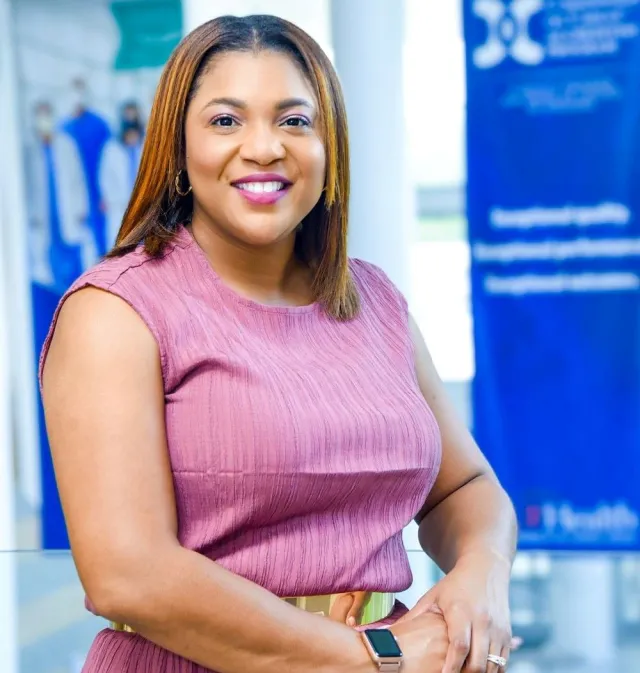How One Woman Navigated a Mesothelioma Diagnosis and Found Her New Normal

Tamron shares her story to help raise awareness about mesothelioma and survivorship.
Just a few months after giving birth to her first child, Tamron Little learned she had peritoneal mesothelioma, a malignant mesothelioma that begins in the abdomen or stomach. Throughout her journey, Tamron’s love for her infant son gave her hope, and her husband was a steady source of comfort and support. Today, 15 years after her diagnosis, Tamron shares her story to help raise awareness about mesothelioma, survivorship, and the importance of support. Keep reading to learn about her journey.
Could you talk a bit about your peritoneal mesothelioma diagnosis and whether you had been experiencing any signs or symptoms?
I was pregnant with my first child at the time and was told I had a fibroid tumor during a routine ultrasound. My medical team reassured me that it was nothing to worry about and that it wouldn’t cause any harm to me or my baby. The signs and symptoms that I had were pretty much the textbook pregnancy symptoms: stomach pain, constipation, nausea, vomiting. But I was also extremely tired all the time. One thing that stood out was my low hemoglobin; it would run about 7, and the normal range is about 13 or 14. Doctors did numerous tests to try to figure out why it was low. The doctors concluded that I had microcytic anemia — something I’d never heard of before. Microcytic anemia is when your red blood cells are smaller than normal because they don’t have enough hemoglobin. Hemoglobin is the protein that helps your red blood cells carry oxygen throughout your body. Microcytic anemia can be a sign pointing to high levels of inflammation in the body, which asbestos exposure causes.
After this diagnosis, it was recommended that I have a port placed so I could receive iron infusions 3 times a week. I declined the advised treatment and moved back home, where I found new doctors. My new medical team proposed a different treatment plan that included high-potency iron pills 3 to 4 times a day. I was told that the fibroid tumor was causing the microcytic anemia, that being pregnant magnified the symptoms, and that my numbers shouldn't be as low once I had given birth. This piece of the puzzle is what led doctors to look more into the “fibroid” tumor; not only was my hemoglobin still low, but the tumor was getting larger. Months after giving birth to my son, I had laparoscopic surgery to remove the tumor. That was the day I was told I had peritoneal mesothelioma.
"Support is vital. I couldn’t stress enough the importance of supporting your loved ones while they are battling mesothelioma."
What were some sources of hope and comfort that helped you cope with the news?
Clinging to the hope that I wanted to be there for my 5-month-old baby. I saw that as a reason to fight. I didn’t want him to grow up without knowing his mama. My focus was on Caleb and doing whatever I had to do to get rid of the cancer. When you’re going through something like cancer, it’s as if the hope, joy, and happiness has been sucked out of you, and all you think about is the cancer. So, the little hope I had is what got me through. I sought out comfort from my husband, family, and church family, who prayed for me and helped me any way they could.

How did you speak to your family about your diagnosis? How would you encourage caregivers for those diagnosed with mesothelioma to support their loved one?
I’ve heard from so many patients that they didn’t want to tell their family members initially, for privacy reasons and even out of fear of how they would be perceived. In my case I kept my family in the know from the very beginning. I knew I would need their support and didn’t want to harbor this huge secret. Support is vital. I couldn’t stress enough the importance of supporting your loved ones while they are battling mesothelioma. Volunteer to either accompany them or take them to their appointments.
At the time of your diagnosis, you had just recently become a mother. What helped you juggle the role of caregiving as a parent while navigating cancer?
Yes, I was a first-time mom not knowing what to expect as a mother or as a mom with cancer. After my surgery I couldn’t do the normal mother roles such as picking my son up, changing his diaper, and bathing him. My husband was my biggest supporter. He stepped up and became the double-duty dad. He took care of me and our son. If there was an award for best dad and husband, it would go to my husband. He got up with Caleb in the middle of the night, fed him, and bathed him, while simultaneously taking care of my needs. Once I got my strength back, I jumped right into my mother and wife duties feetfirst.
"I get peace and joy knowing that I’m blessed to share my story and that, when I share my story, it’s giving others hope, inspiration, and encouragement that you can thrive even after cancer."
What are some challenges you navigate today as a mesothelioma survivor, and what role does self-advocacy play in your survivorship care?
One main challenge is that mesothelioma is a very rare cancer, and in fact, peritoneal mesothelioma is an even rarer form. I don’t meet too many people who look like me with this disease. Being your own advocate plays a vital role in your journey, even as a survivor. I’m more aware of what’s going on in my body and not afraid to ask questions or verbalize my concerns to my medical team. I remind anyone I talk to about the importance of advocating for themselves.
How do you personally define cancer survivorship?
I would personally define cancer survivorship as a testament to my experience being diagnosed with cancer, with the focus on my life now after cancer. This includes navigating through my experiences within the healthcare systems, challenges, and victories. Survivorship is an entity of its own outside of your diagnosis. Before cancer my life was “normal.” During cancer, that became my new “normal.” And now, after cancer, my life is “normal."
What brings you joy and peace?
I get peace and joy knowing that I’m blessed to share my story and that, when I share my story, it’s giving others hope, inspiration, and encouragement that you can thrive even after cancer
What is one piece of advice you’d like to share with other survivors — something you wish someone would have told you when your cancer journey started?
Check in with yourself on a mental level. Feel your emotions and process what’s going on. Be intentional about being present in the moment.